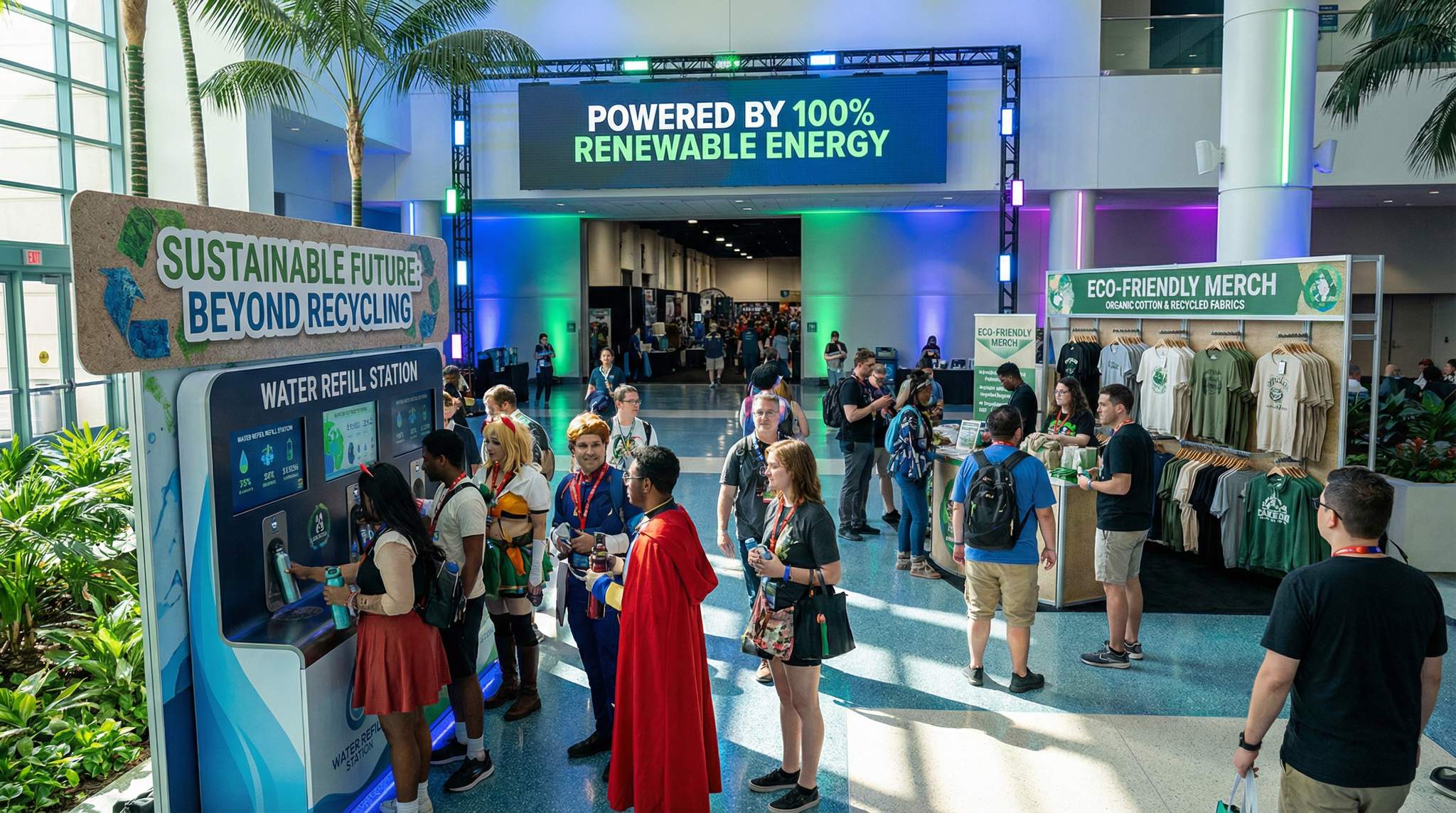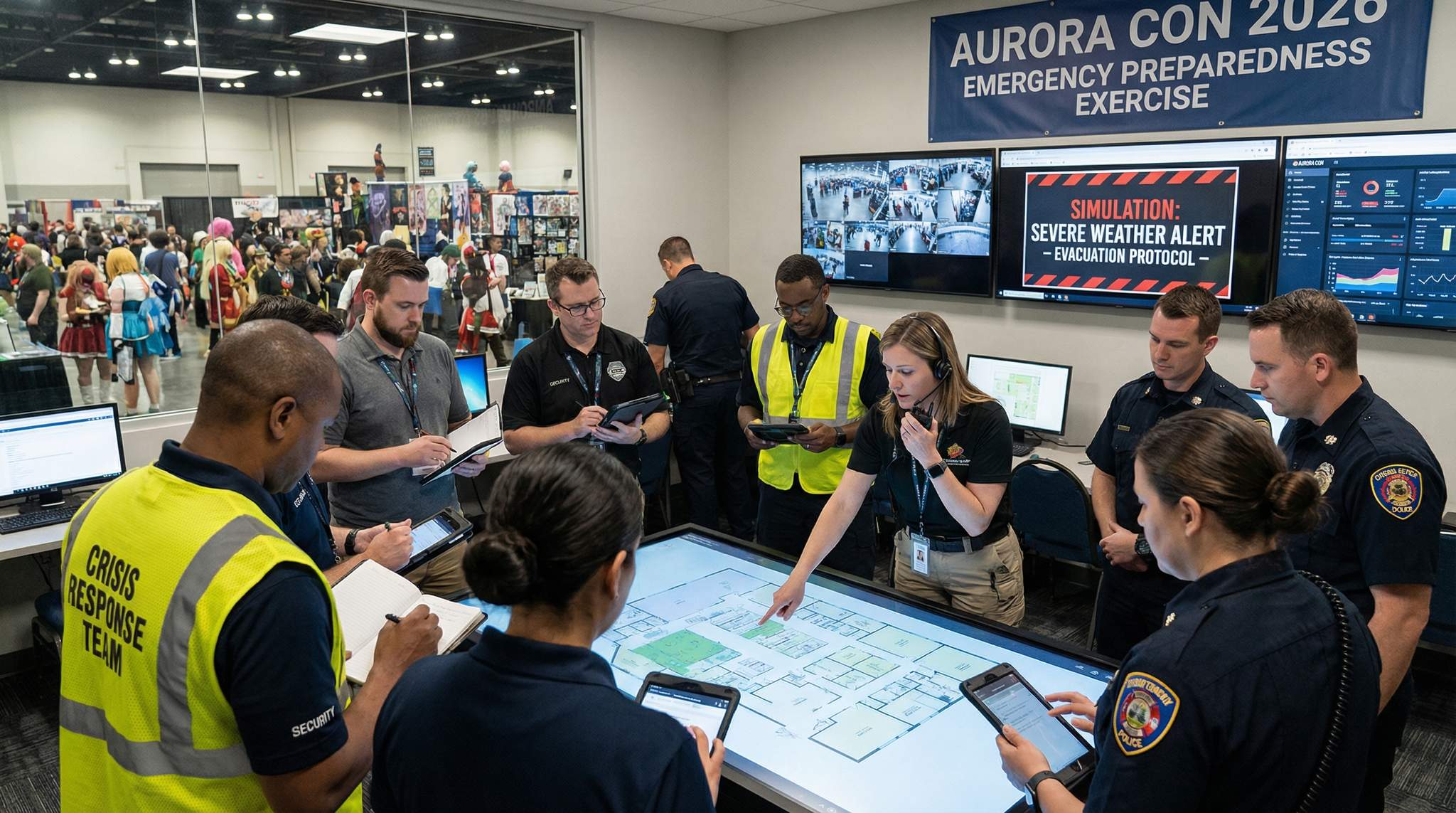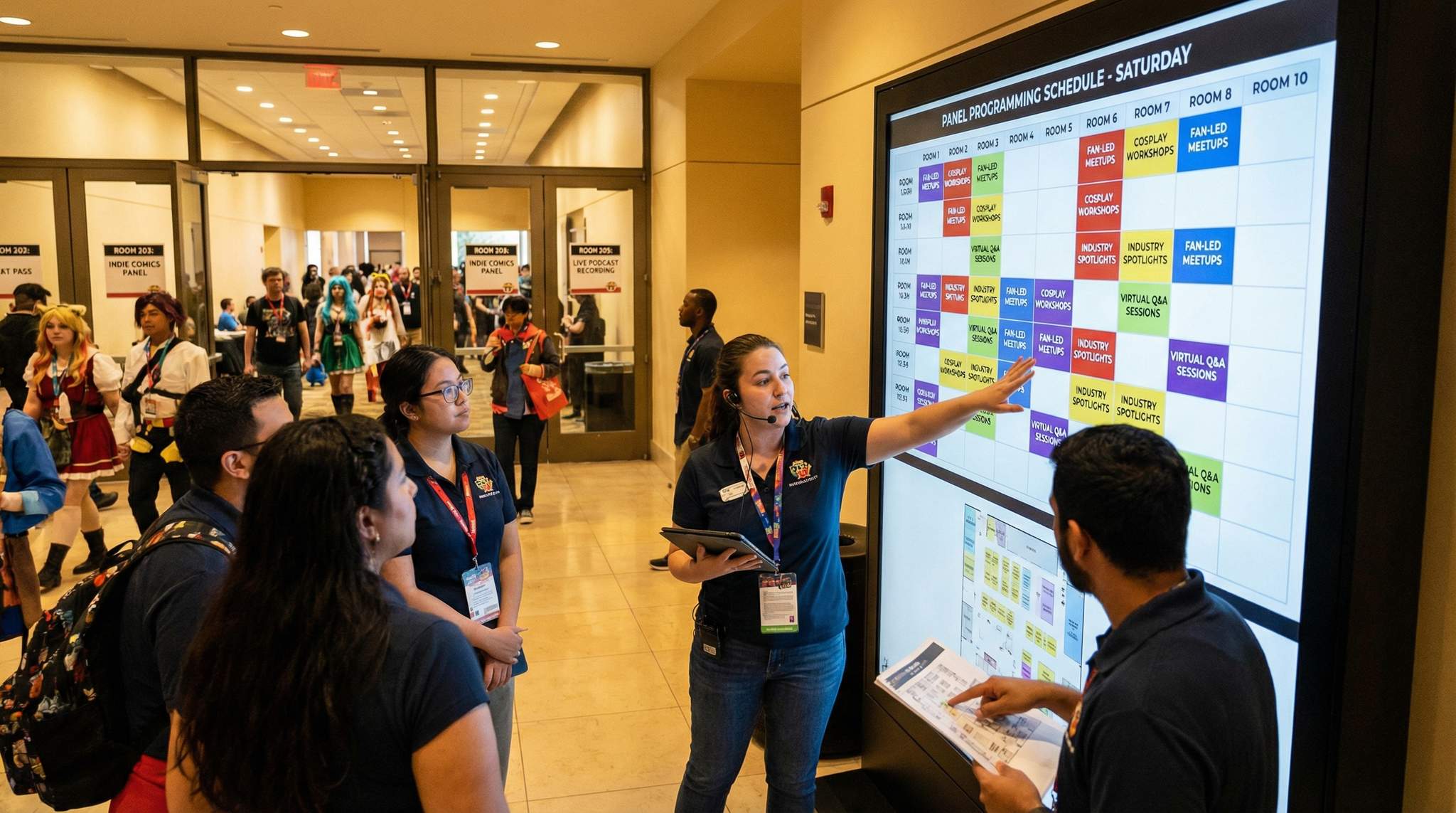The convention landscape is undergoing a dramatic transformation as we approach 2025, driven by evolving attendee expectations and technological advancements within the event industry.
Today’s convention audiences are more diverse, digitally connected, and engaged than ever before, demanding experiences that blend innovation with inclusivity. This comprehensive guide explores the pivotal trends reshaping the future of conventions across industries, from entertainment and gaming to business and technology sectors.
The Rise of Hybrid Events: Bridging Physical and Digital Experiences
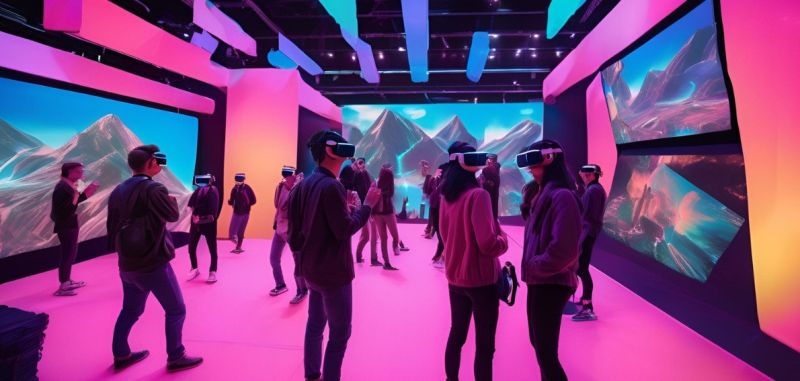
Hybrid events have emerged as the new standard in convention planning, offering a sophisticated blend of in-person and virtual experiences. These innovative formats extend beyond simple remote attendance options, creating immersive digital environments that complement physical gatherings.
Virtual attendees, including remote attendees, can now engage in real-time networking opportunities, participate in live panel discussions, and connect with other participants through sophisticated digital platforms. The availability of on-demand content has become a significant draw, allowing both in-person and virtual attendees to access recorded sessions and workshops at their convenience, extending the convention’s value well beyond its scheduled dates.
Also Read: A Complete Guide to Setting Up Your Live Event to Stream on Twitch
Ready to Sell Tickets?
Create professional event pages with built-in payment processing, marketing tools, and real-time analytics.
Personalization: Crafting Unique Convention Experiences for Event Planners
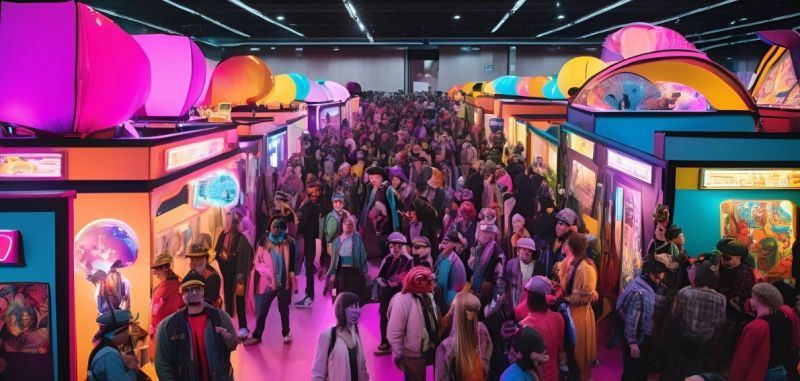
Convention attendees in 2025 increasingly seek personalized experiences that cater to their specific interests and preferences. Advanced AI technology now powers sophisticated recommendation systems that create tailored event schedules and suggest relevant exhibitors based on individual preferences. Meeting professionals are leveraging these AI-powered tools to create highly personalized schedules and experiences for attendees.
The merchandising landscape has evolved to offer customizable products created on-demand, while interactive experiences allow attendees to engage with content in ways that resonate with their particular interests. This level of personalization extends to every aspect of the convention experience, from custom digital badges to personalized networking opportunities.
Embracing Diversity, Equity, and Inclusion

Modern conventions are placing unprecedented emphasis on diversity, equity, and inclusion (DEI) initiatives, reflecting broader societal awareness and expectations. Event programming now showcases a rich variety of voices across different backgrounds, ensuring representation across race, gender, and sexual orientation.
Accessibility has become a cornerstone of convention planning, with venues offering comprehensive accommodations for physical, mental, and technological needs. Gender-neutral spaces and inclusive programming are now standard features, creating welcoming environments that celebrate diversity and foster community engagement. Inclusive programming and accessible venues are essential for fostering meaningful connections among diverse attendees.
Sustainability: The Green Convention Revolution

Environmental consciousness has become a defining characteristic of successful conventions in 2025. Event professionals are implementing comprehensive sustainability initiatives, from eco-friendly merchandise programs to sophisticated waste reduction strategies.
Grow Your Events
Leverage referral marketing, social sharing incentives, and audience insights to sell more tickets.
Carbon offset programs have become increasingly prevalent, with many events incorporating environmental responsibility into their core planning. This includes offering virtual attendance options to reduce travel emissions and partnering with venues that prioritize green initiatives. Sustainable practices extend to all aspects of convention operations, from food service to exhibition materials.
Immersive Technology: Enhancing Attendee Engagement at Conventions
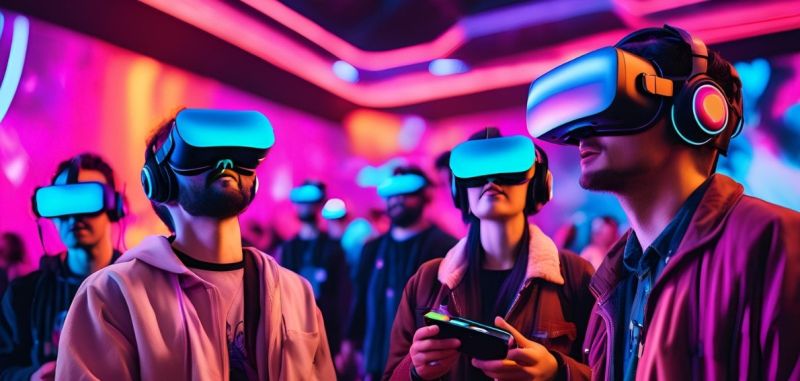
The integration of cutting-edge technology has revolutionized the convention experience. Virtual and augmented reality technologies now create unprecedented immersive experiences, allowing attendees to interact with content in three-dimensional spaces.
Convention event spaces have evolved to include gamified elements, where attendees can participate in virtual scavenger hunts, earn achievement badges, and engage in interactive exhibits. These technological innovations transform passive attendance into active participation, creating memorable experiences that resonate with modern audiences.
Social Media Integration and Digital Engagement in the Event Industry
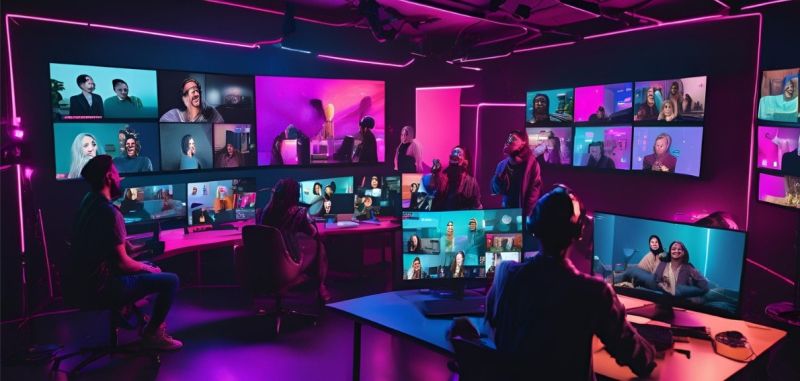
Social media has become integral to the convention experience, fostering real-time engagement and community building. Live streaming capabilities and interactive panel discussions enable immediate audience participation, while dedicated digital content creators and influencers drive engagement before, during, and after events.
The creation and sharing of user-generated content has become a central aspect of event marketing and convention culture, with organizers facilitating digital interaction through innovative platforms and campaigns.
Evolving Event Trends

The events industry is constantly evolving, and 2025 is no exception. As event planners and professionals, staying ahead of the curve and adapting to the latest trends is crucial. One of the most significant trends in 2025 is the increased focus on sustainability and eco-friendliness. Event organizers are now expected to incorporate green practices into their events, such as reducing waste, using eco-friendly materials, and promoting environmentally responsible behaviors.
Another trend gaining momentum is the use of artificial intelligence (AI) in events. AI-powered tools are revolutionizing the way events are planned and executed, enhancing attendee engagement, personalizing experiences, and streamlining operations. From chatbots that provide instant assistance to predictive analytics that help tailor content to individual preferences, AI is becoming an indispensable tool for event organizers.
Immersive experiences are also becoming increasingly popular, with event planners incorporating virtual and augmented reality, interactive installations, and experiential marketing into their events. These experiences not only create memorable moments for attendees but also provide valuable opportunities for brands to connect with their target audience in innovative ways. As the events industry continues to evolve, embracing these trends will be key to creating engaging and impactful events.
Measuring Success
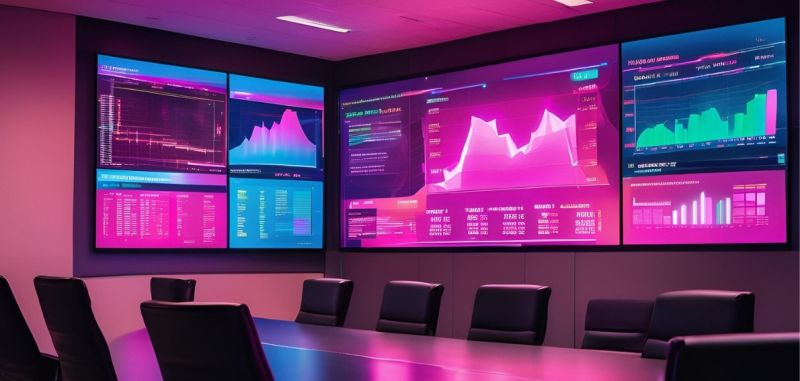
Measuring the success of an event is crucial for event planners and professionals. In 2025, event organizers are moving beyond traditional metrics such as attendance numbers and revenue generated. Instead, they’re focusing on more meaningful metrics such as attendee engagement, satisfaction, and return on investment (ROI).
To measure these metrics, event planners are using a range of tools and technologies, including event apps, surveys, and analytics software. These tools provide valuable insights into attendee behavior, preferences, and needs, allowing event planners to refine their strategies and improve future events. For instance, event apps can track engagement rates by monitoring session attendance and interaction levels, while surveys can gauge attendee satisfaction and gather feedback.
One of the most effective ways to measure event success is through the use of data-driven metrics. By tracking key performance indicators (KPIs) such as engagement rates, conversion rates, and net promoter scores, event planners can gain a deeper understanding of their event’s impact. This data-driven approach enables event organizers to make informed decisions, ensuring that each event is more successful than the last.
Venue and Destination Trends
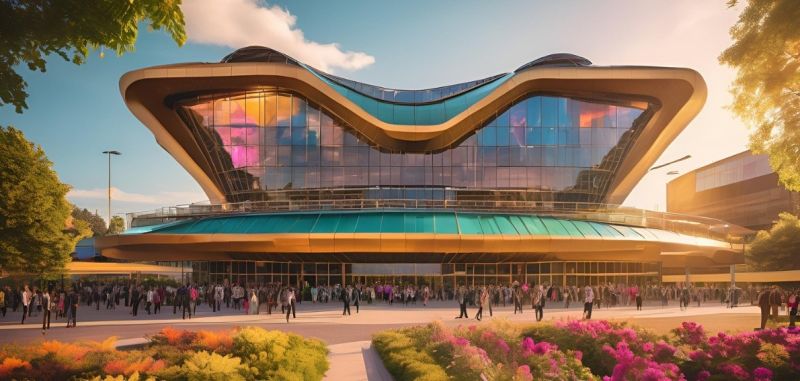
The choice of venue and destination is critical for any event. In 2025, event planners are looking for venues and destinations that offer unique and memorable experiences for attendees. This includes venues with state-of-the-art technology, sustainable practices, and flexible layouts that can be adapted to different event formats.
Destinations that offer a range of activities, attractions, and experiences are also in high demand. Event planners are seeking destinations that can provide attendees with a unique and immersive experience, from cultural attractions to outdoor activities. These destinations not only enhance the overall attendee experience but also add value to the event by offering additional opportunities for engagement and exploration.
To find the perfect venue and destination, event planners are using a range of tools and technologies, including venue finding platforms, destination marketing organizations, and event planning software. These tools provide valuable insights into venue and destination options, allowing event planners to make informed decisions and create memorable events. By leveraging these resources, event organizers can ensure that their events stand out and leave a lasting impression on attendees.
Also Read: 7 Tips for Seamless Event Entry Management at Your Events
Looking Ahead: The Future of Conventions and Event Trends

As conventions continue to evolve, success will depend on organizers’ ability to adapt to changing audience expectations while maintaining authentic and meaningful experiences. The future of conventions lies in creating seamless integrations between physical and digital spaces, prioritizing inclusivity and sustainability, and leveraging technology to enhance rather than replace human connection. By embracing these trends, convention organizers can create compelling events that resonate with modern audiences while setting new standards for industry excellence.
This evolution in convention planning and execution reflects a renewed focus on how audiences engage with events, content, and communities. The successful conventions of 2025 will be those that effectively balance innovation with authenticity, creating experiences that feel both cutting-edge and genuinely meaningful to their attendees.
Frequently Asked Questions
How are hybrid events transforming the convention experience in 2025?
Hybrid events have become the cornerstone of modern conventions, offering a sophisticated blend of in-person and virtual experiences. These events go beyond basic remote attendance by providing immersive digital environments where virtual participants can engage in real-time networking, participate in live panel discussions, and connect with other attendees through advanced digital platforms.
The integration of on-demand content allows both physical and virtual attendees to access recorded sessions and workshops at their convenience, significantly extending the convention’s value beyond its scheduled dates. This hybrid approach ensures maximum accessibility and engagement for all participants.
What role does personalization play in modern convention experiences?
Convention personalization has evolved significantly, with AI-powered systems creating tailored experiences for each attendee. These sophisticated recommendation systems generate customized event schedules and suggest relevant exhibitors based on individual preferences and interests. The personalization extends to merchandising, offering on-demand customizable products that reflect attendees’ specific interests.
Event planners utilize AI tools to craft unique experiences, from custom digital badges to personalized networking opportunities. This level of customization ensures that each attendee receives a unique and relevant convention experience that aligns with their specific goals and interests.
How are conventions addressing diversity, equity, and inclusion (DEI) in 2025?
Modern conventions have made DEI initiatives a primary focus, implementing comprehensive strategies to ensure representation across race, gender, and sexual orientation in their programming. Venues now offer extensive accommodations for physical, mental, and technological needs, making accessibility a fundamental aspect of convention planning.
Gender-neutral spaces and inclusive programming have become standard features, creating welcoming environments that celebrate diversity. This commitment to DEI extends throughout the entire event experience, from speaker selection to facility design, fostering an environment where all attendees feel welcomed and represented.
What sustainable practices are being implemented at conventions in 2025?
Environmental consciousness has become a crucial element of convention planning, with organizers implementing comprehensive sustainability initiatives. These include eco-friendly merchandise programs, sophisticated waste reduction strategies, and carbon offset programs.
Events are increasingly offering virtual attendance options to reduce travel emissions and partnering with venues that prioritize green initiatives. Sustainable practices have been integrated into all aspects of convention operations, from food service to exhibition materials. This commitment to sustainability reflects the growing awareness of environmental responsibility within the events industry.
How is technology enhancing attendee engagement at modern conventions?
Cutting-edge technology has revolutionized convention experiences through virtual and augmented reality technologies that create immersive, three-dimensional interactions. Convention spaces now feature gamified elements, including virtual scavenger hunts and achievement systems, transforming passive attendance into active participation.
Social media integration enables real-time engagement and community building through live streaming and interactive discussions. Content creators and influencers drive engagement before, during, and after events, while innovative platforms facilitate digital interaction and user-generated content sharing, creating a more dynamic and engaging convention experience.
You May Also Like:
10 Hidden Costs to Budget for an Event
Music Business Conference Attendee Experience: How to Create an Exceptional Event
Anti Scalping for Event Management: Why These Measures Are Essential – A Complete Guide



